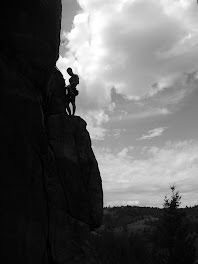As I have learned more about open education and open learning I have asked myself.."What does this mean? How does this change learning? What are the challenges?" With that thought in mind I put pen to paper and started to jot down a few things. Learners will have plenty of information via the internet and other means but more this information will be also not be categorized. Further challenges will require that the learner has the skills to determine the validity of the information, but chances are he/she will at times suffer from "information overload, and will be challenged by determining the credibility of the learning resources.
The learner will have unprecedented opportunities for interaction with others; for learning and socializing but he/she will have to determine the legitimacy of this interaction for learning. These interactions go beyond the individual one to one interactions to the basic team interaction to social learning. In order to do this the learner will need to have the skills to evaluate the arguments and be able to objectively develop his/her own arguments. The learner will have to develop critical thinking skills to understand the diverse points of view and understand all sides of an argument to craft his/her own.
The advent of social networking may also be driven by the economy, not only will universities and colleges be looking at cost effective ways to communicate with learners the learners will also be make the same decisions. Social networking tools, most of which are free or basically free, are demonstrating a positive return on investment as more and more learners, faculty, and institutions turn to them in this economic downturn, to underpin communication in online classes and facilitate communication for classes. Not only are these tools free they are easy to access and use.
The formalization and acknowledgment that games are tools for learning. Learners will move away from the notion that using virtual worlds for learning, 3d environments, and immersive environments offer more to their learning experience than just "video games." These environments can be highly structured to meet the outcomes of the course or curriculum and provide the potential to engage a student in his/her learning experience. The learners will need to have the ability to evaluate what he or she is learning and how that applies to the course.
Learners will need to be able to critically self-evaluate in order to understand whether or not the learning experience was meaningful and applied to what they needed to learn. The informal learner will especially need to have this skill as he/she reviews the offerings of open course ware, for example in order to ensure that the course materials he/she is accessing are those that will lead him/her to the intended educational goal.
Finally the learner will have to have the skills to present the informal learning in such a way as to get credit or recognition for it, this could be through portfolios or other presentations. This is a critical skill, a review of univerisity or college course catalogs may indicated whether or not that institutions give credit for prior learning, challenge exams, or CLEP tests.
Steampunk Adventures back from a real life interruption!
-
Hello everyone, I can’t believe that I have not posted anything here since
June of 2011! So much has happened in the past several months..real life
has ce...
14 years ago





No comments:
Post a Comment